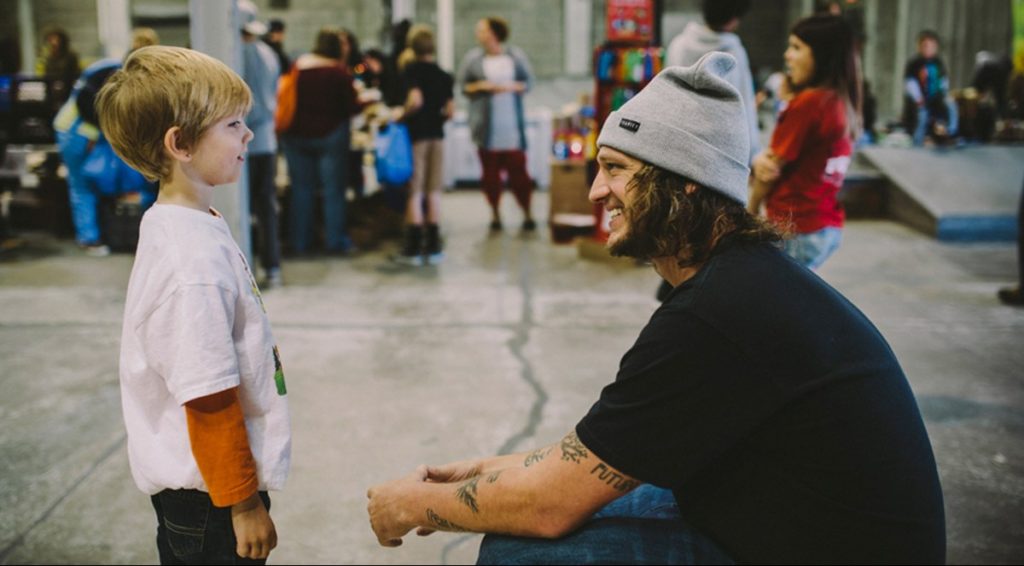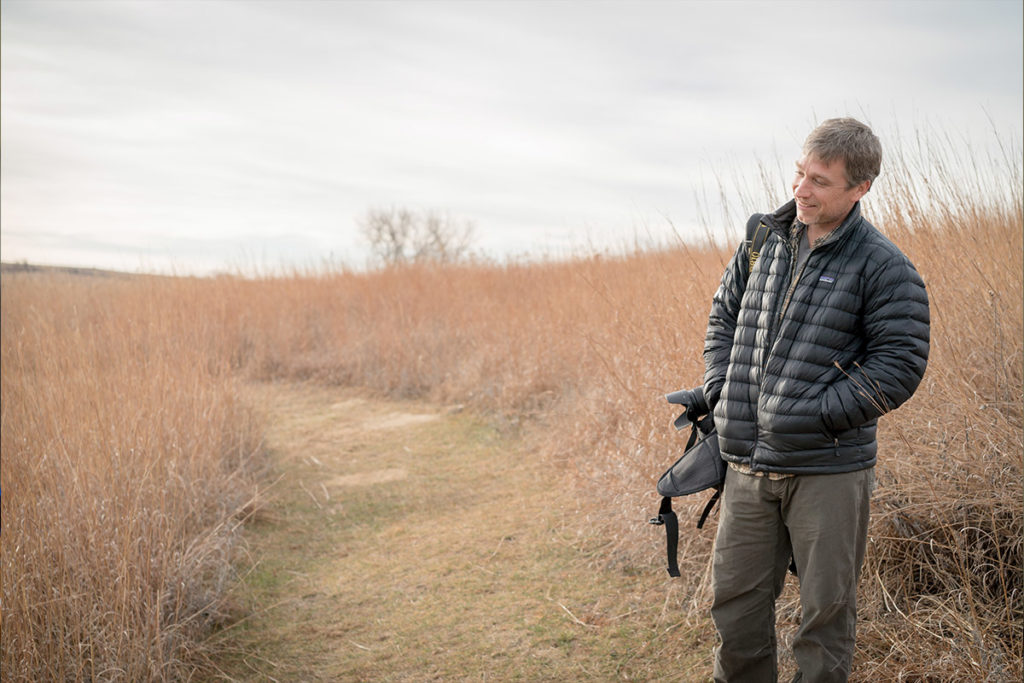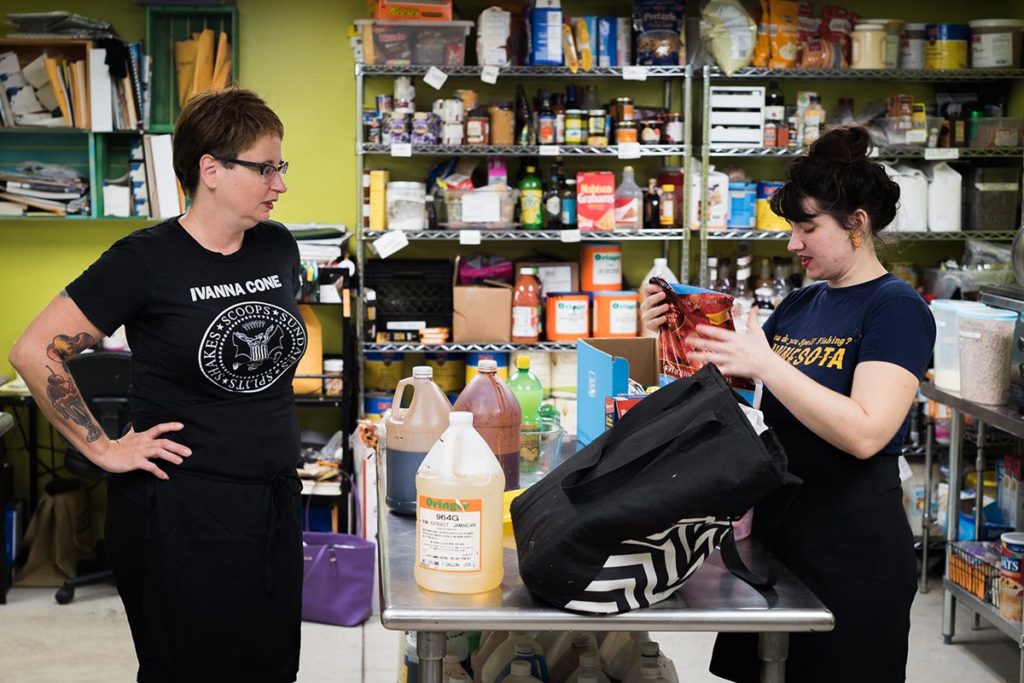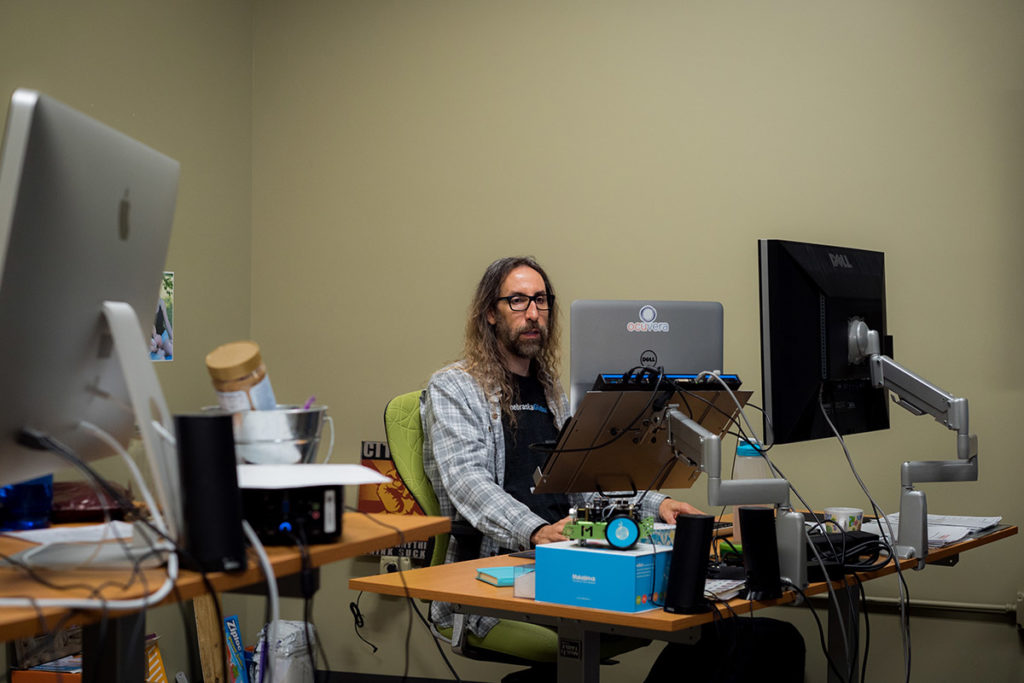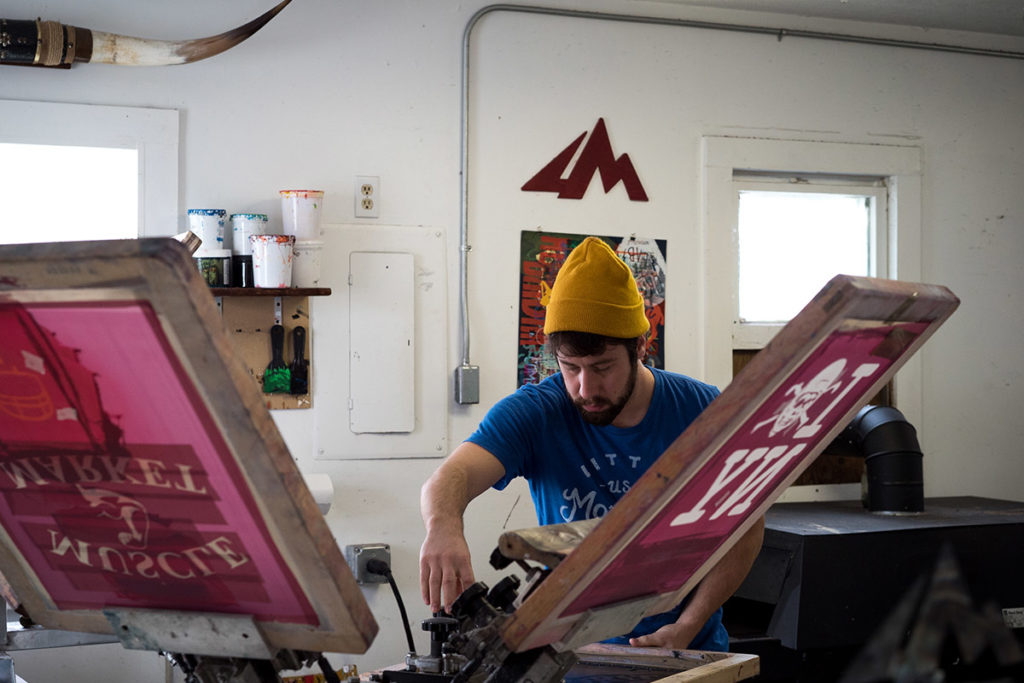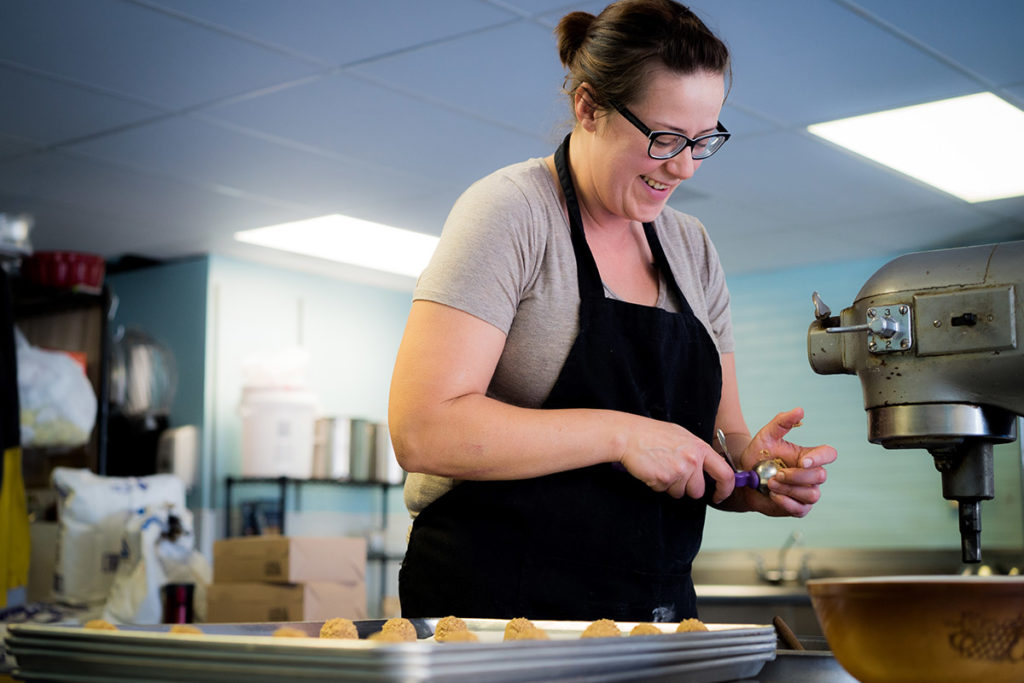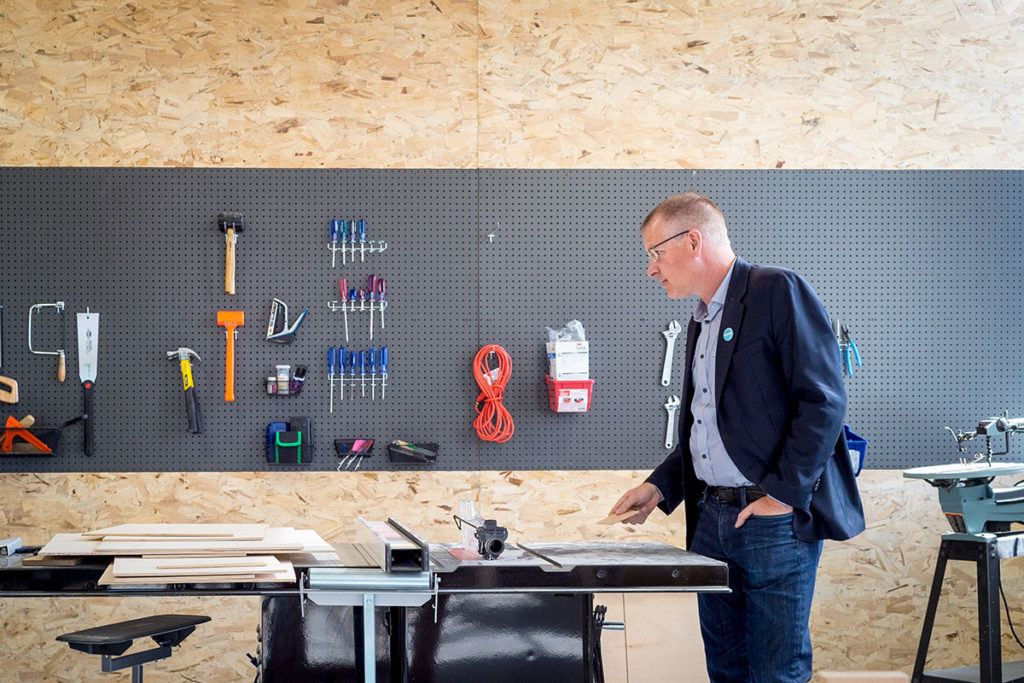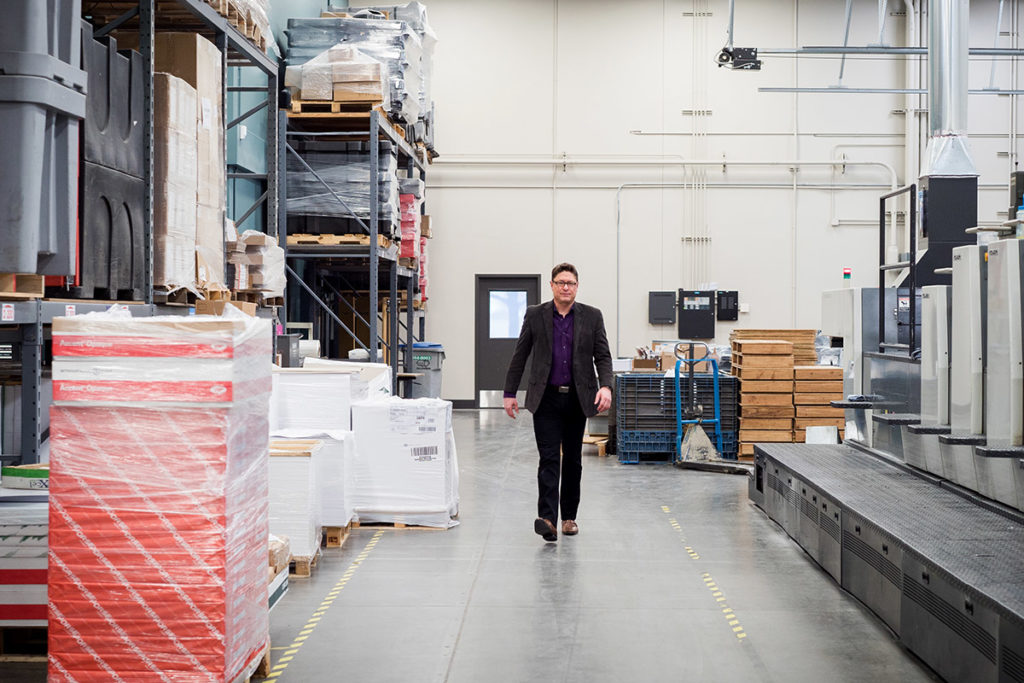
For Jay Wilkinson, it’s pretty normal to get quoted in nonprofit circles, retweeted by marketing gurus and interviewed on local or national TV…all in one day.
Back in college he started four businesses. Yes, four. One of which went-big and prompted a move to New York City post-graduation.
In 1992, he sold the company that took him to the big city and came back to his home-state of Nebraska.
Upon his return, Jay bought a printing franchise that he eventually turned into Cornerstone Printing and Marketing, which has since become Firespring.
Those big steps, and the little ones in between, are all important milestones in Jay’s story. He’s a well-known entrepreneur, nonprofit activist, community builder and webinar facilitator in Lincoln, but he admittedly has spent a big chunk of his life trying to be someone he’s not – his father.
“He’s my vision of what it’s like to live a life rather than have life happen to you,” Jay said.
Now, it’s not wrong to want to be like your parent, but Jay put a lot of pressure on himself to not only be like his dad, but to be his dad. And much of Jay’s striving to be his father has shaped his own story.
Gilbert (Gil) Wilkinson is a scrappy hustler with a strong work-ethic, a present mindset and a wise spirit. Gil showed up and participated. He was at every practice and football game and he led Jay’s Boy Scout troop, guiding eight boys to achieve the rank of Eagle Scout.
Having a parent like this is amazing, Jay said, but it’s also extremely frustrating. Jay was constantly working to measure up to this incredible man, but nothing he did ever seemed like enough.
This pressure was 100 percent self-inflicted. Jay said his dad never compared their careers, work ethic or abilities. He’d probably hate that Jay has spent so much of his life feeling like he’d come up short. But it’s all part of Jay’s story.
As he grew older and more successful, Jay decided that saving his money and using it to build a massive homage to his father could be his way of paying back his dad for every example and bit of wisdom he’d sewn into Jay’s character.
But if you’re looking for a hospital wing or collegiate library named after Gilbert Wilkinson, you won’t find one. A few years ago, Jay realized that dedicating a building to his father wasn’t where he should be investing his energy.
Jay pulled a piece of off-white paper out of a folder and handed it to me. It’s a quote that he took from an impactful leadership training he attended as a 16-year-old.
“I’ve carried it with me ever since,” Jay said, going on to read the quote.
“ ‘I expect to pass through this world but once. Any good, therefore, that I can do or any kindness I can show, let me do it now. Let me not defer or neglect it, for I shall not pass this way again.’ ”
Jay said he’s read this Stephan Grellet quote over and over again, but a few years ago the words ‘do it now’ jumped off the page.
Do it now.
Jay realized that in his constant striving to be his dad or pay him back, he’d been waiting to live out the quote that he’d theoretically structured his life around.
He realized he would never be his dad, and that was ok. He also realized he needed to stop waiting.
So that’s what Jay did.
He changed Firespring’s mission statement to reflect his decision do good in the present, not just the future.
In 2014 Firespring became the first and only certified B-Corp in the state, holding to a high-level of third-party accountability and transparency. It’s a label that requires a company to hold up to its promised giving, not bend to the whims of a good or bad fiscal year.
Jay said this is usually the part in his story where people tend to nod off. After all, everyone has heard about companies ‘giving back’ or incentivising their employees to volunteer and donate. Blah, blah, blah. Right?
But Jay is actually doing this. He’s living up to the bold letters and almost cheesy sayings that are painted on the walls at Firespring. He’s giving, empowering, motivating and teaching as an outpouring of his personal beliefs, not because of the way it looks.
A few years back, Jay probably would have said he was doing all this good for his dad, which would have been okay, but now, he’s doing it because he thinks it’s what matters.
It’s part of his story and his legacy.
Jay can’t be his dad, and that doesn’t bother him anymore.

